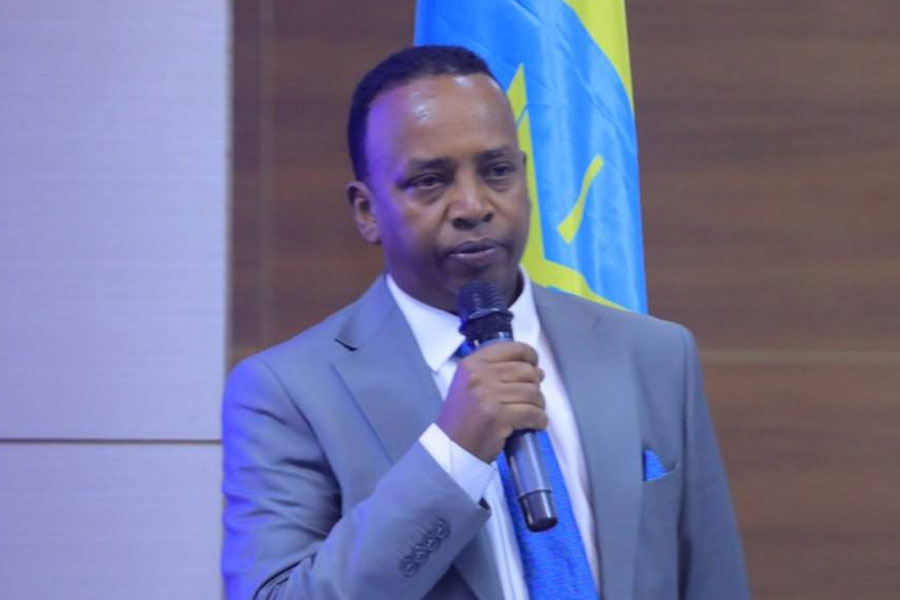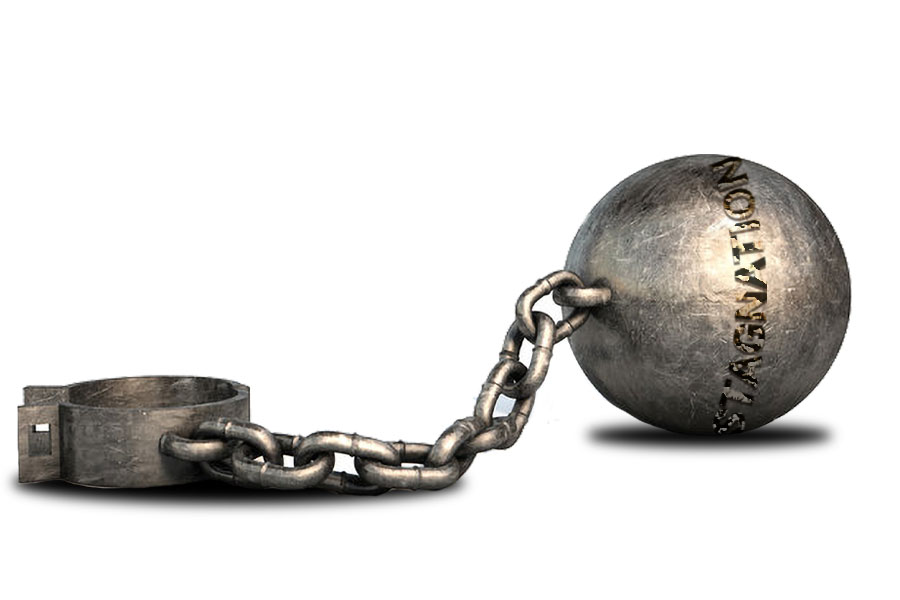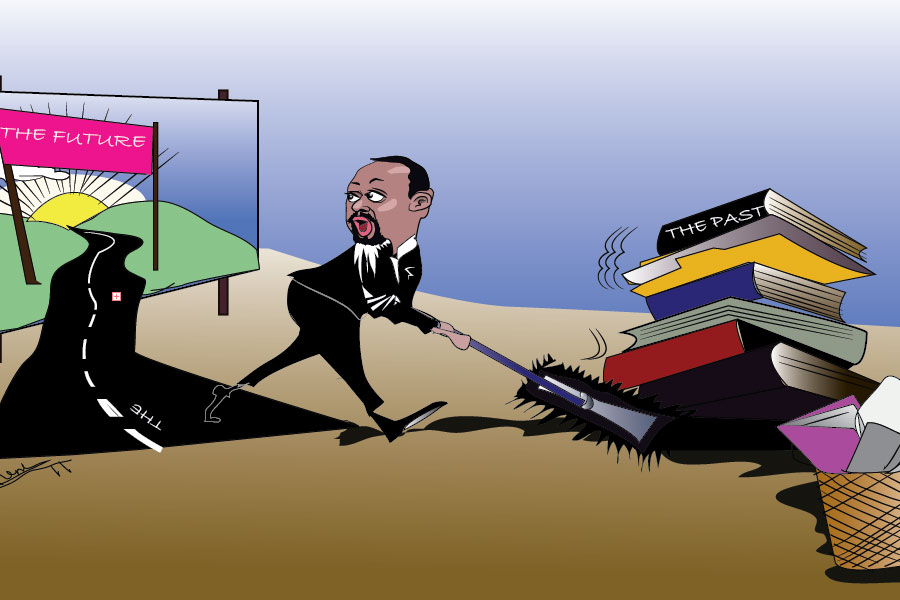
Viewpoints | Dec 19,2018
Dec 29 , 2018
By Belay Abera
As a university teacher, it is not hard to come by students and, even teachers, that do not abide by the principles and ethics of the higher learning institutions they attend. It goes a long way in explaining the lack of professionalism and integrity that is practised in the work place, in both the private and the public sector.
The problem cannot merely be regarded from the perspective of cultural or religious contexts, for these could be subjective, but professionalism in the workplace that is all too necessary for a productive citizenry.
This problem can seldom be addressed if we are not willing to acknowledge that it has its roots in the higher learning institutions from where the skilled human power is sourced. Students that spend years in institutions that do not observe basic institutional ethics standards cannot be berated for performing without principles when they finally join the labour market.
A starting point for considering institutional ethics are codes of ethical policies and procedures with guidelines on appropriate standards of behaviour. These policies should be part of public universities’ major strategy.
Ethics is the study of moral principles and conduct. Ethicists ask questions about what is right and what is wrong within our social and political contours. It is also about relationships and how we should interact and live with others.
It can be understood as a “set of rules, principles or ways of thinking that guide, or claim authority to guide, the actions of a particular group,” according to Peter Singer, an Australian philosopher.
Institutional ethics is concerned with the way in which people should conduct themselves within institutions. It is based on the assumption that individual responses to ethical issues are “necessarily constrained or supported” within organisations, and it is easier to act ethically in a culture that is deemed ethical than one that is not. Institutional ethics needs to be built into the operations and core decision-making processes of organisations.
In recent times, there has been heightened media and public awareness of unethical behaviours in higher education institutions such as universities. Examples include plagiarism by staff and students, various forms of cheating, sexual harassment in and out of the classroom, misuse of power and bribes. Campus youth are also becoming embroiled in substance addiction as a result of peer pressure and increased availability of the substances in Ethiopia.
The higher education climate is one that has undergone major reform and restructuring in line with managerial practices. In universities, these practices have included the adoption of private sector practices with a strong focus on outcomes, key performance indicators, monitoring and measurement, as well as tighter efficiency standards and accountability.
But poor management persists, and one of its consequences has been the erosion of ethical standards. It derives from the strong focus on bureaucratic rather than moral accountability. It is said that such a climate creates what is known as “morally mute managers,” who assess information through a bureaucratic lens.
Unethical practice is viewed as leaders who fail to support others who question unethical practices that take place within their organisation. Alternatively, unethical conduct by leaders is said to occur when they exert pressure on staff to act in unethical ways.
Ethical dilemmas occur when decisions that require a choice among competing sets of principles arise.
“Their emergence is unsurprising given the pressures and complexities of working within modern organisations. Universities are complex, pressured environments where academic leaders are faced with competing tensions and pressures when making decisions that affect diverse stakeholders such as students, colleagues, the local community, employers and corporate partners,” as the academics Lisa Catherine Ehrich, Neil Cranston, Megan Kimber and Karen Starr assert through references in a paper entitled "Unethical Practices & Ethical Dilemmas in Universities."
Their paper details a number of tensions that lead to universities being unable to either put into place institutional ethics or follow through with them. The most relevant out of the bunch to the Ethiopian context are individual, and it might be added political, demands for higher education against labour market requirements, as well as the aspirations and expectations of individuals against the prevailing economic constraints and established cultural values.
Thus, establishing and strengthening institutional ethics can help battle the ever-growing managerial and academic ethical issues and the conflicts that arise in higher learning institutions. The most important takeaway is that students need to be trained in the path of professionalism, which not only requires their observance of institutional ethics but that managerial staff and teachers also abide by the rules.
PUBLISHED ON
Dec 29,2018 [ VOL
19 , NO
974]


Viewpoints | Dec 19,2018

Radar | Jun 15,2025

Commentaries | Jan 18,2020

Sunday with Eden | Apr 26,2025

Viewpoints | Jan 07,2022

Viewpoints | Jun 17,2023

View From Arada | Sep 18,2021

Viewpoints | Jul 07,2024

Radar | Oct 07,2023

Editorial | Feb 01,2019

Photo Gallery | 173639 Views | May 06,2019

Photo Gallery | 163859 Views | Apr 26,2019

Photo Gallery | 153877 Views | Oct 06,2021

My Opinion | 136540 Views | Aug 14,2021
Editorial | Oct 11,2025

Dec 22 , 2024 . By TIZITA SHEWAFERAW
Charged with transforming colossal state-owned enterprises into modern and competitiv...

Aug 18 , 2024 . By AKSAH ITALO
Although predictable Yonas Zerihun's job in the ride-hailing service is not immune to...

Jul 28 , 2024 . By TIZITA SHEWAFERAW
Unhabitual, perhaps too many, Samuel Gebreyohannes, 38, used to occasionally enjoy a couple of beers at breakfast. However, he recently swit...

Jul 13 , 2024 . By AKSAH ITALO
Investors who rely on tractors, trucks, and field vehicles for commuting, transporting commodities, and f...

Oct 11 , 2025
Ladislas Farago, a roving Associated Press (AP) correspondent, arrived in Ethiopia in...

Oct 4 , 2025
Eyob Tekalegn (PhD) had been in the Governor's chair for only weeks when, on Septembe...

Sep 27 , 2025
Four years into an experiment with “shock therapy” in education, the national moo...

Sep 20 , 2025
Getachew Reda's return to the national stage was always going to stir attention. Once...

Oct 12 , 2025
Tomato prices in Addis Abeba have surged to unprecedented levels, with retail stands charging between 85 Br and 140 Br a kilo, nearly triple...

Oct 12 , 2025 . By BEZAWIT HULUAGER
A sweeping change in the vehicle licensing system has tilted the scales in favour of electric vehicle (EV...

Oct 12 , 2025 . By NAHOM AYELE
A simmering dispute between the legal profession and the federal government is nearing a breaking point,...

Oct 12 , 2025 . By NAHOM AYELE
A violent storm that ripped through the flower belt of Bishoftu (Debreziet), 45Km east of the capital, in...